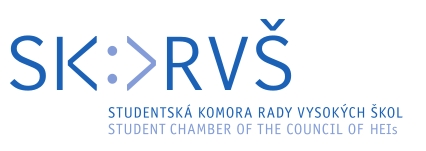
Quality Assurance in Czechia and Students’ New Role
Author: Matej Patrik Žitňanský Member of Studentská komora Rady vysokých skol (SK RVŠ),
Students in the Czech Republic now have a brand-new competence. They can influence the processes of accreditation in an unprecedented way. Until 2016, students were often invited and could observe and comment on the accreditation process, but they were not a part of the decision making. Now, the law orders that students must take an active role. There is a student representative in the accreditation authority, in each evaluation committee and in a university-established quality-assurance boards (if the university aims for an institutional accreditation). A great success, right?
Nevertheless, the evaluations do not run fully yet. Today, we only evaluate minor requests left-over after the former Accreditation Committee, which was a part of the Ministry. Evaluations happen mainly per email, without evaluators visiting institutions they evaluate. They are simply asked to read documents prepared by the institution, write their position and vote. The evaluations then serve as a recommendation for the accreditation authority which makes the final decision.
Getting trained is a prerequisite for anyone who wants to become an evaluator. So far, evaluators have received a 3-hour briefing, about the structure of the accreditation system. Even though they know how the system (should) work, they have not learned much about how to evaluate on the spot.
SK RVŠ is trying to convince students to subscribe as evaluators. However, remuneration does not motivate, indeed it is considered as almost-voluntary work. The Ministry of Education pays exactly 340 CZK (about 13 EUR after tax) for work in one whole evaluation process. This is a work which, if done responsibly, takes hours and even days. It seems that the government passed the new system, but forgot to allocate funding to make it work.
The new National Accreditation Authority should be independent from the government. Now, in the matters of decision-making, it is. However, the Ministry of Education has dominance over its organisational matters. For example, the Ministry decides how the Authority uses its resources and whether they can reimburse travels.
The Czech Republic has now de jure a new system of quality assurance with a strong student representation. However, the conditions for the students must improve. The accreditation system needs more funding, high-quality training for evaluators, experience from our ESU partners and much more publicity. Otherwise, we risk that study programmes will have to close down or even that students lose their right to be present in the process.
If you would like to share an example of increased student participation in decision-making processes, please contact filip@esu-online.org.
